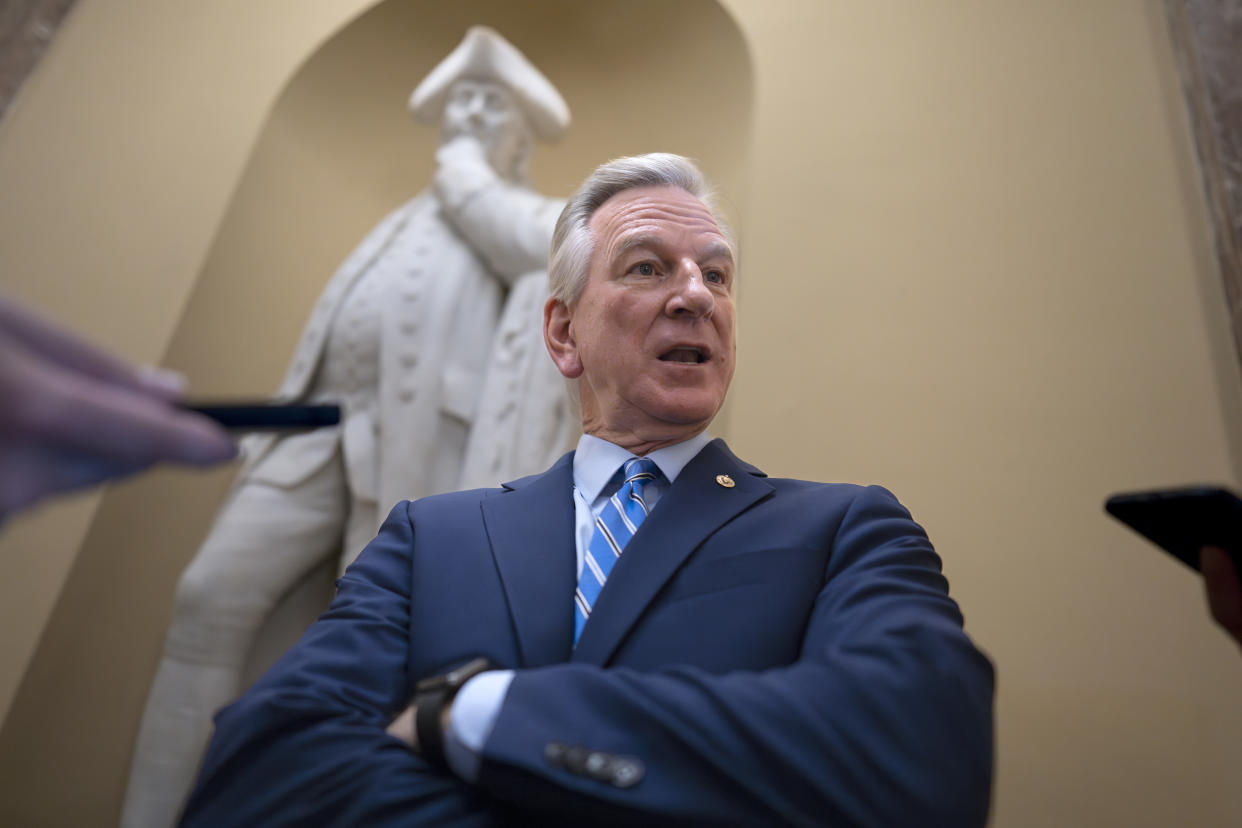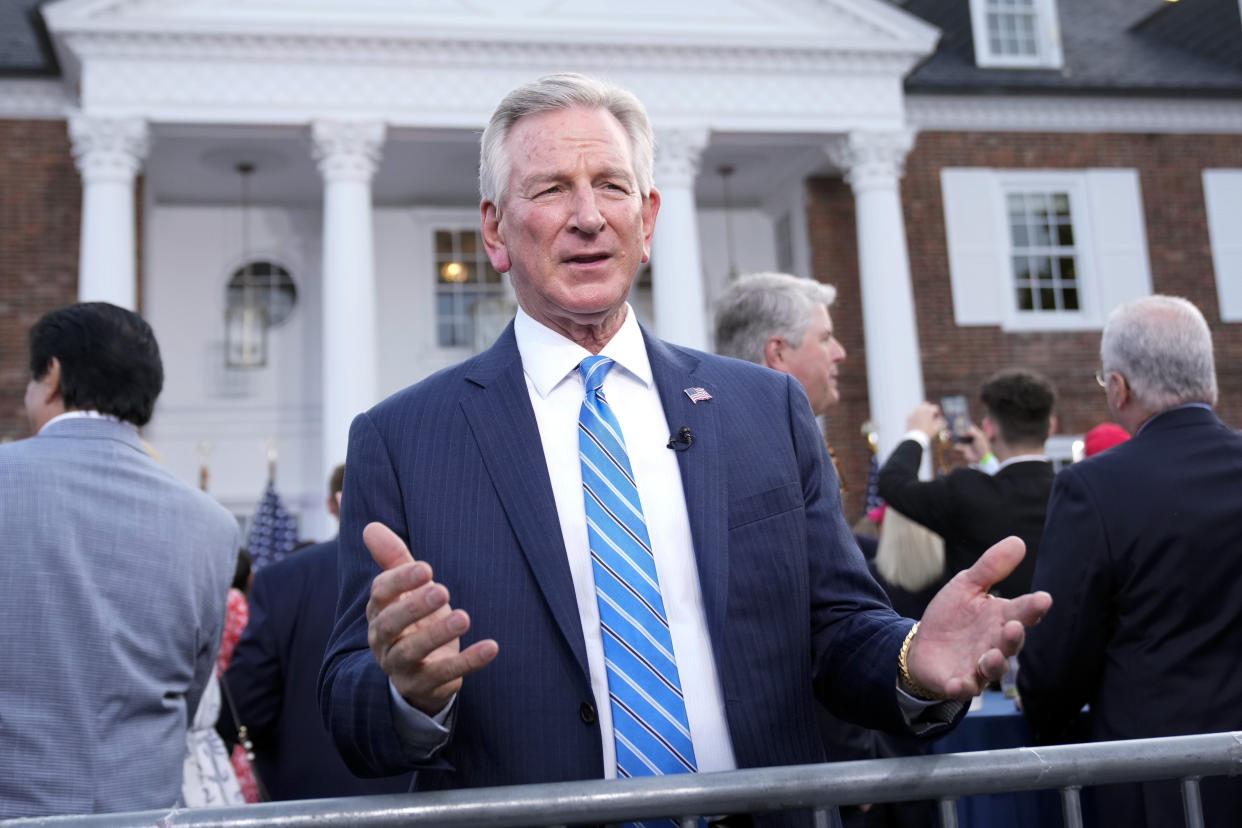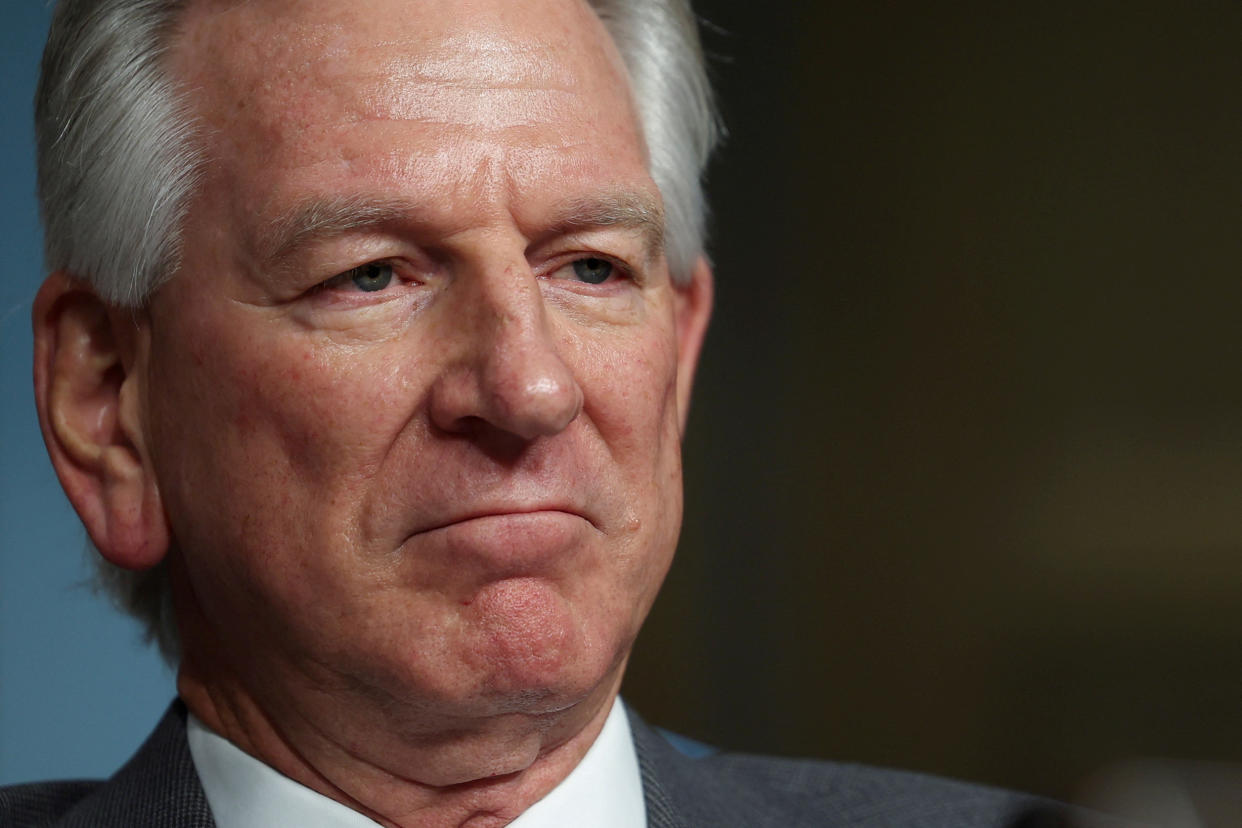Senate Republicans grapple with Tuberville's positions on white nationalism, abortion, military promotions

Sen. Tommy Tuberville’s positions on white nationalism and the military’s policy on traveling for abortions have put Republicans in a difficult spot.
After weeks of insisting that white nationalism doesn’t equal racism, and tripling down on that opinion over the previous 24 hours, the Alabama Republican eventually told reporters Tuesday at the Capitol that “white nationalists are racists.” Republicans in Washington, D.C., had spent the day fielding questions about Tuberville’s position.
“White supremacy is simply unacceptable in the military and in our whole country,” Senate Minority Leader Mitch McConnell, R-Ky., said at his weekly press conference.
“White supremacy and racism have absolutely no place in our country. Period. The end,” said Sen. Katie Britt, Tuberville’s Republican colleague from Alabama.
In addition to muddying the waters on white nationalism, Tuberville has drawn condemnation for his blocking of military promotions of all senior military officersover a Pentagon policy on reproductive health. In doing so, he’s turned into a favorite target of President Biden, who has called the tactic “bizarre” and specifically targeted the Alabama senator in fundraising pitches and official speeches.
Repeated defenses of white nationalism

In a May interview with Birmingham radio station WBHM, Tuberville said that military recruiting was hurting “because the Democrats are attacking our military, saying we need to get out the white extremists, the white nationalists, people that don’t believe in [Biden’s] agenda.”
When asked if he believed white nationalists should be able to serve in the military, he said, “They call them that. I call them Americans.”
For years, Pentagon officials have expressed concern about extremists serving in the military. After his confirmation in early 2021, one of Defense Secretary Lloyd Austin’s first acts was to order the individual military branches to address the issue.
Tuberville’s office attempted to clean up the comments in a statement, saying the senator “was being skeptical of the notion that there are white nationalists in the military, not that he believes they should be in the military.” However, in an interview with CNN on Monday, Tuberville reiterated his belief that being a white nationalist didn’t necessarily make someone a racist.
“Now, if that white nationalist is a racist, I’m totally against anything that they want to do, because I am 110% against racism,” he said.
The Alabama senator was elusive on the definition again Tuesday before his about-face, telling ABCNews, “Listen, I’m totally against racism. And if Democrats want to say that white nationalists are racist, I’m totally against that too.”
“But that’s not a Democratic definition,” replied reporter Rachel Scott.
“Well, that’s your definition,” Tuberville said. “My definition is racism is bad.”
In a speech on the Senate floor Tuesday morning, Majority Leader Chuck Schumer, D-N.Y., called on Tuberville to apologize, saying, “The definition of white nationalism is not a matter of opinion.”
A freeze on the Pentagon

For months, Tuberville has also been blocking military promotions over the Pentagon’s decision to pay for the travel of service members if they need to leave the state in which they’re stationed to receive reproductive care, including abortions. He opposes the policy, although the military pays only for the travel, not for the procedure itself.
Thus far Tuberville’s hold has stopped the promotions of 260 officers, a number that could climb to 650 by year’s end if it isn’t lifted. Most recently, the senator blocked a vote on a new leader for the Marines, leaving the Corps without a Senate-confirmed commandant for the first time in over a century. The national security adviser who devised the strategy for Tuberville resigned in May after a Washington Post profile highlighted his role in the blockade and his eccentric past as a food writer.
In May, seven former defense secretaries, including two who served under former President Donald Trump, wrote to Senate leadership urging them to act on the blockaded nominees because Tuberville’s action was “harming military readiness and risks damaging U.S. national security.” In a statement Monday, Austin said that “smooth and timely transitions of confirmed leadership are central to the defense of the United States.”
McConnell has told reporters he does not support the hold. Sen. John Thune, R-S.D., the No. 2 Republican in the Senate, said Tuesday that he believed there was a path forward.
“I think that the longer this drags on, the more problematic it becomes for the military to function and operate in the way that I think the American people expect them to operate. So I’m hoping something can be worked out here,” he said.
Sen. John Cornyn, R-Texas, said he agreed with Tuberville’s position but wanted to find a way to “help him make his point without blocking a lot of these nominations, which has nothing to do with the controversy,” adding a warning that it may be setting a precedent “that we’re not going to like in the future.”
Tuberville's action of holding up scores of military promotions over abortion underlines his party’s position on the issue, which has hurt Republicans in numerous swing races since the Supreme Court’s decision to overturn Roe v. Wade in June 2022.


